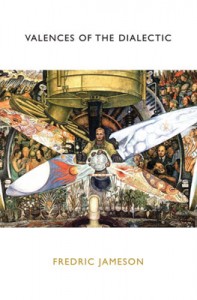 |
Frederic Jameson. Valences of the Dialectic. First published in 2009. London and New York: Verso, 2010.
It was, and still is, a valuable lesson for art critics and cultural theorists alike, and it is one echoed in the writings of Frederic Jameson, most famously, of course, in his Postmodernism book. What attracts me most to Jameson, however, is his insistence, as stubborn as it is consistent, on dialectical criticism. When I took up my first post as an academic on a philosophy faculty, my colleagues were engaged in many of the cutting-edge debates in continental philosophy that were highly critical of, and parted with, the dialectic in favor of philosophers of note such as Foucault and Deleuze and relational thinkers such as Latour and Sloterdijk. Meanwhile, my reading habits drifted more and more to the tradition of Western Marxism––Benjamin, Bloch, Adorno, Lefebvre, etc. I highly valued the former, yet was not capable of letting go of the latter. The result was, evidently, some kind of intellectual crisis. Jameson, especially in his masterful Valences of the Dialectic (2010), shows how it still is possible, and very much intellectually legitimate and rewarding, to work within the dialectical tradition after, as well as with, Derrida cum suis.
|